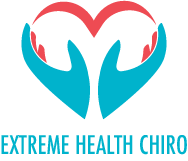In the aftermath of a motorcycle accident, physical injuries are often the most visible and immediate concern. However, it’s essential not to overlook the emotional toll that such traumatic events can take on individuals involved as an abogado en accidentes de motocicleta can explain. Emotional distress, also known as psychological or mental anguish, is a valid and often significant component of personal injury claims resulting from motorcycle accidents.
The Nature Of Emotional Distress
Emotional distress refers to the psychological suffering experienced by an individual due to a traumatic event, such as a motorcycle accident. This can manifest in various ways, including anxiety, depression, fear, sleep disturbances, and post-traumatic stress disorder (PTSD). These emotional reactions can significantly impact a person’s overall well-being and quality of life. It can be even more difficult because these are considered “invisible injuries” which means they are harder to prove and defend, but they are an important component of injury cases.
Recognizing Emotional Distress Symptoms
Following a motorcycle accident, individuals may experience a range of emotional and psychological symptoms. These can include:
1. Anxiety and Fear: Feelings of nervousness, worry, and fear about driving or being in a vehicle again.
2. Depression: Persistent feelings of sadness, hopelessness, and loss of interest in activities previously enjoyed.
3. PTSD: Intrusive memories, flashbacks, nightmares, and hypervigilance related to the accident.
4. Anger and Irritability: Difficulty controlling emotions, increased irritability, and anger outbursts.
5. Guilt and Shame: Feelings of guilt or self-blame, especially if the individual believes they could have prevented the accident.
These can also be experienced by your family members after an accident if your injuries were especially traumatic.
In personal injury claims resulting from motorcycle accidents, individuals may seek compensation for the emotional distress they’ve endured. This can be challenging to quantify, as emotional injuries are inherently subjective and may not have tangible evidence like physical injuries. However, with the help of a skilled motorcycle accident lawyer, individuals can present evidence to support their emotional distress claim.
Proving Emotional Distress In Legal Proceedings
To establish emotional distress as part of a motorcycle accident claim, certain criteria must be met as our colleagues at Unidos Legales know well. This typically involves demonstrating that:
1. Direct Result of the Accident: The emotional distress experienced is a direct result of the accident and its aftermath.
2. Severity of Symptoms: The individual experienced significant and debilitating emotional symptoms that have impacted their daily life.
3. Expert Testimony: Testimony from mental health professionals, such as psychologists or psychiatrists, can provide objective evidence of the emotional distress suffered.
Emotional distress is a significant aspect of many motorcycle accident cases, and it’s essential to recognize its impact on individuals’ lives. By understanding the nature of emotional distress, recognizing its symptoms, and seeking appropriate support and legal guidance, individuals can navigate the aftermath of a motorcycle accident more effectively. If you or someone you love has been injured in an accident, reach out to a lawyer near you for help.

